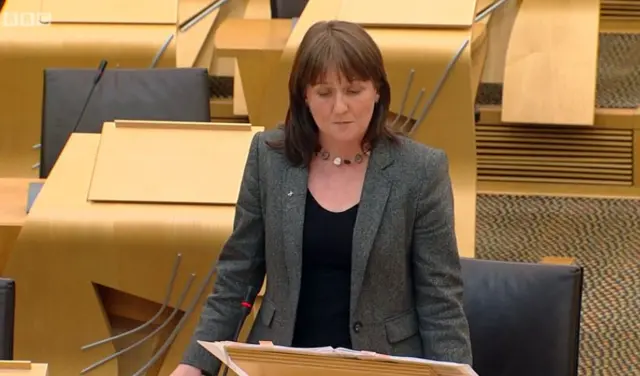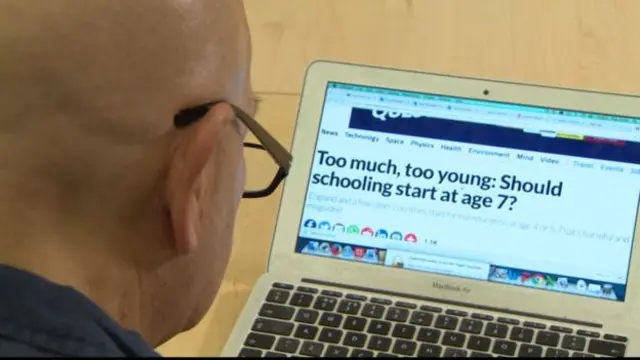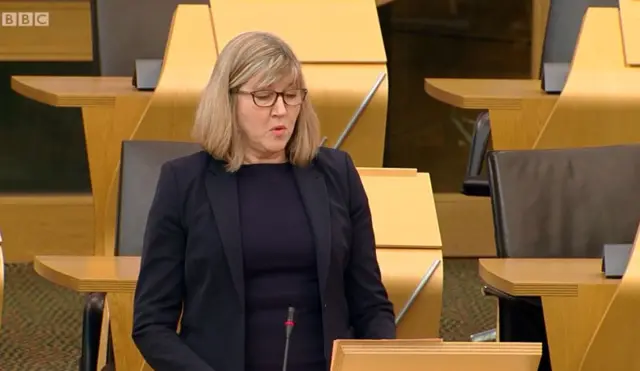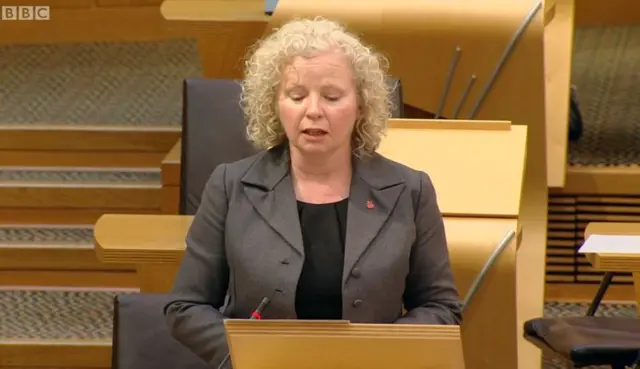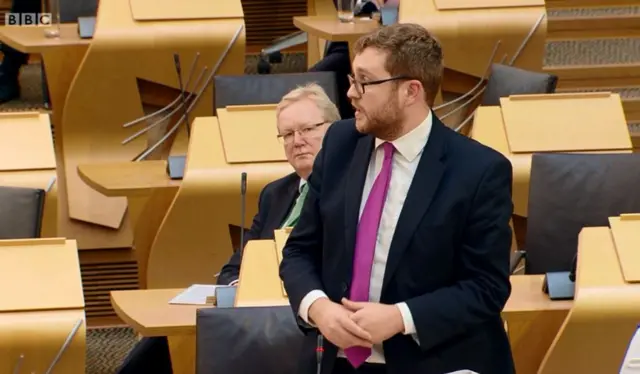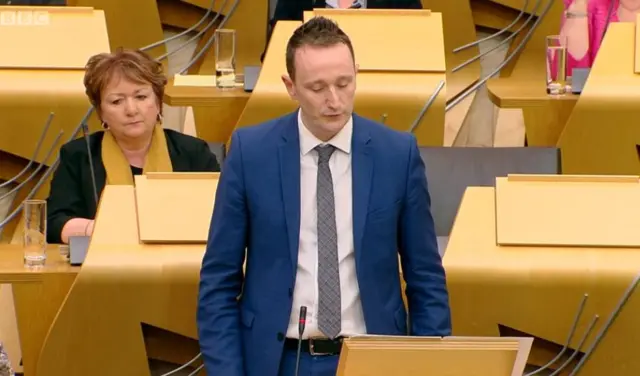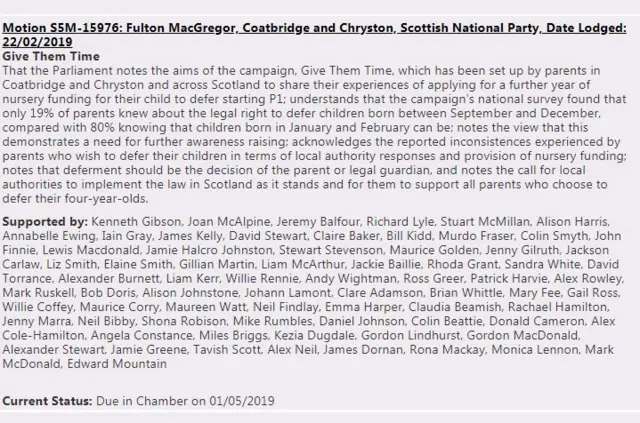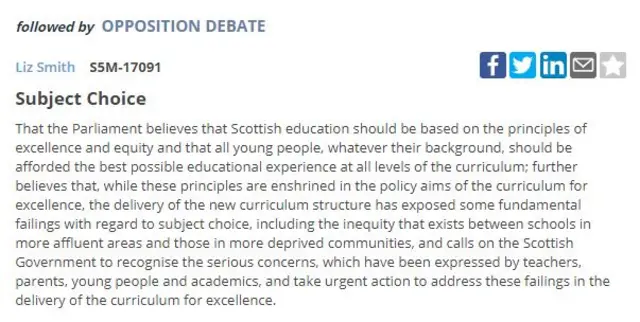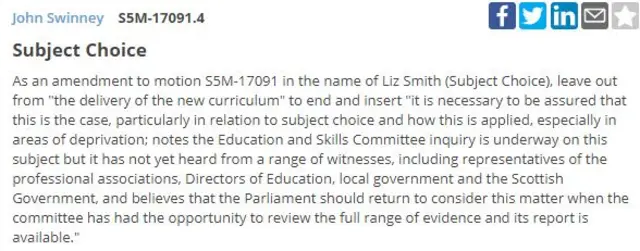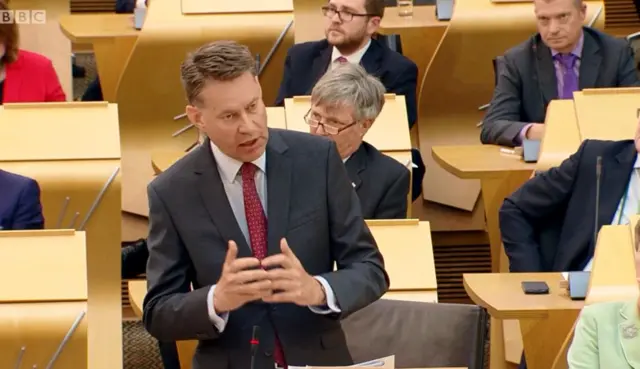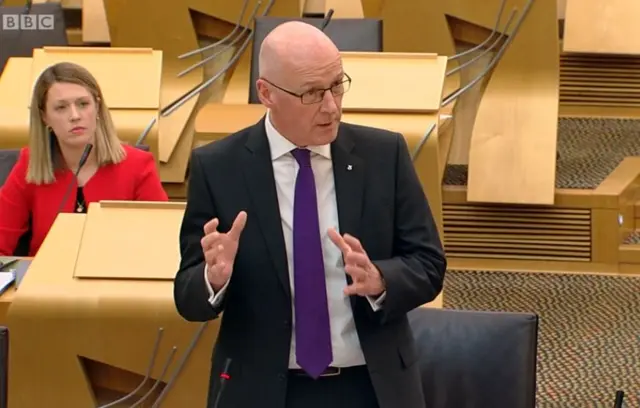MSPs call for 'urgent action' on subject choicespublished at 17:57 BST 1 May 2019
MSPs jhave voted to recognise "serious concerns" about "fundamental failings with regard to subject choice" in schools - and call for "urgent action" to fix this.
The Scottish government amendment was voted down, with 63 MSPs backing it and with 62 against.
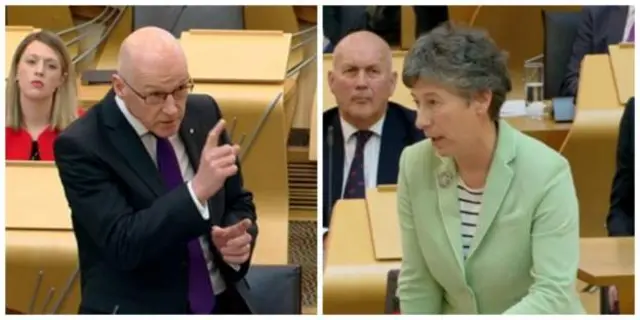 Image source, bbc
Image source, bbcJohn Swinney and Liz Smith clash over subject choices
During the debate Tory MSP Liz Smith aid schools "are offering fewer core subject choices than they were before"
Ms Smith added pupils from the more disadvantaged communities were most likely to have fewer subjects to choose from.
Education Secretary John Swinney argued there is too much focus on S4 and pointed out this debate was taking place before the education committee had carried out its inquiry into subject choice.
That's all from Holyrood Live on 1 May 2019, scroll down the page for reports on a day dominated by the reduction in the number of subject choices in S4.
